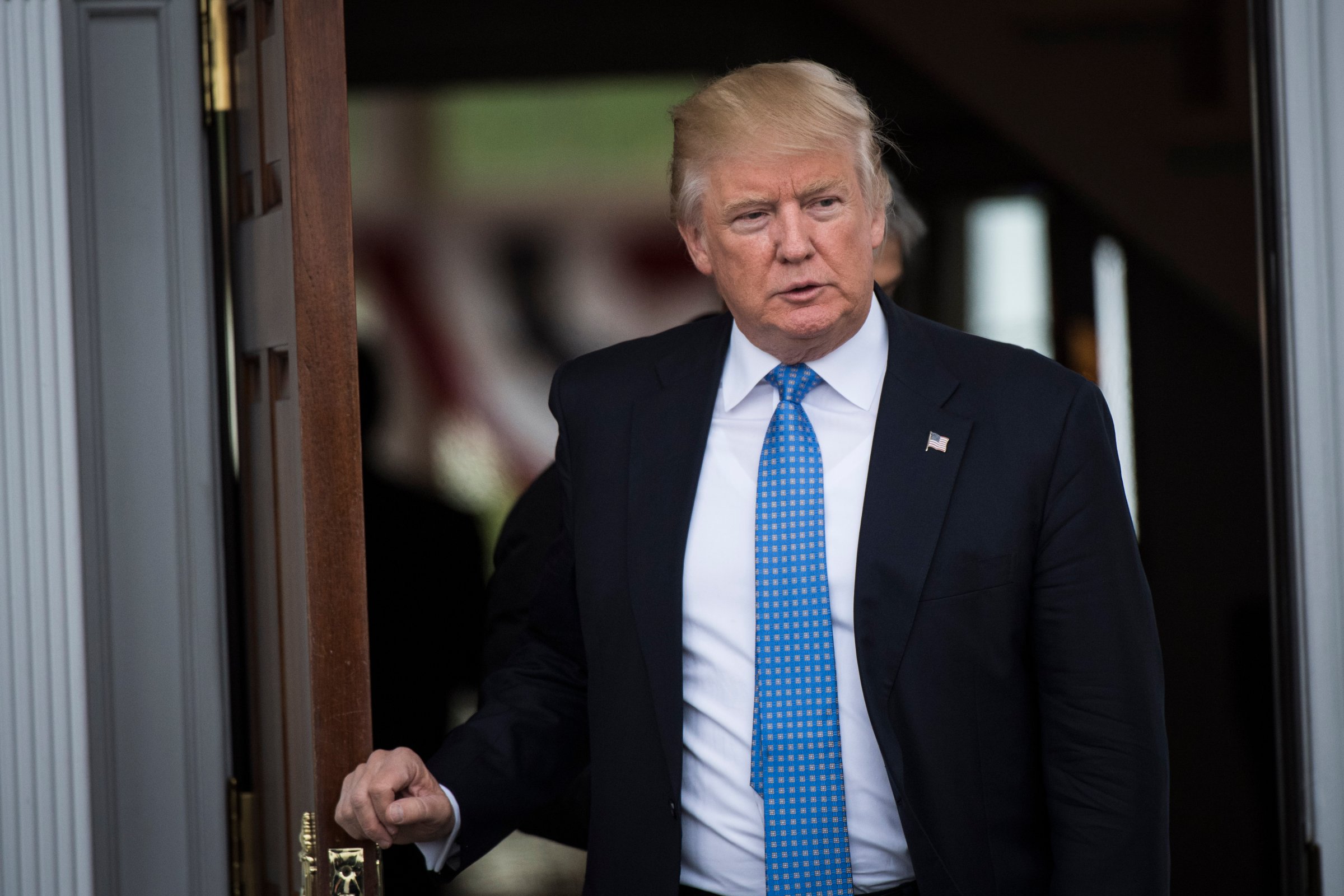
Nesbit was the communications director to former Vice President Dan Quayle and is the author of Poison Tea.
We finally have our first glimpse of what a Donald Trump foreign policy doctrine might eventually look like. Pakistan’s government released a readout Wednesday of a phone call with Pakistan’s prime minister, Muhammad Nawaz Sharif. It offers the first inside glimpse into Trump’s private talks with world leaders since his election victory.
Let’s start with the obvious. Roughly 96% of the total population of Pakistan is Muslim. In the phone call, President-elect Trump said that “Pakistanis are one of the most intelligent people,” according to the readout. Yet Trump, in December 2015, called for a “total and complete shutdown of Muslims entering the United States”—which would, of course, presumably cover almost all Pakistanis. These two things don’t add up. But that’s all right because this is just a get-to-know-you phone call between two world leaders.
Trump later modulated his “total ban” on Muslims to include only “extreme vetting” of any Muslim trying to enter the U.S. from “terror-prone regions where vetting cannot safely occur.” Trump promised that this would start on day one of his presidency because he can do this without any congressional oversight.
Pakistan is the country where Navy Seals—on orders from their commander-in-chief, President Obama—killed al Qaeda leader Osama bin Laden, the mastermind of the 9/11 terror attack. This, by definition, puts Pakistan into Trump’s “terror-prone regions” category. So even the best and the brightest Pakistanis would, at a minimum, be subject to “extreme vetting” under the emerging Trump foreign policy doctrine.
Meanwhile, lurking in the background is this: Pakistan has more than 1.5 million refugees in its country, according to a recent study from Oxfam. It has the fourth highest number of refugees in the world, after Jordan, Turkey and the Occupied Palestinian Authority. Hundreds of thousands are refugees in Pakistan who have fled from the Afghanistan conflict.
In his phone call, Trump told Pakistan’s prime minister that he had a “very good reputation,” He reportedly added: “You are a terrific guy. You are doing amazing work which is visible in every way.” But, under the rules of engagement under the emerging Trump doctrine, Pakistan’s leader isn’t welcome in the U.S., along with any of the 1.5 million refugees in that country.
The Trump organization does business in Turkey. It might also wish to do business in Pakistan. This sort of global reach is one of the serious business conflicts of interest that Trump aides are trying to sort out between now and Dec. 15 when the president-elect has said that he’ll announce his plan to completely exit his business as he enters the White House.
Trump invited Pakistan’s prime minister to call him anytime before he is inaugurated on Jan. 20. “Your country is amazing with tremendous opportunities,” Trump said, according to the readout. “I am ready and willing to play any role that you want me to play to address and find solutions to the outstanding problems.”
What isn’t apparent here, though, is whether Trump was referring to business interests when he alluded to “tremendous opportunities”—or something else entirely that might be negotiated without anyone from Pakistan ever being allowed to set foot in the U.S.
According to the readout, when Pakistan’s prime minister invited the president-elect to visit his country, “Mr. Trump said that he would love to come to a fantastic country, fantastic place of fantastic people. Please convey to the Pakistani people that they are amazing and all Pakistanis I have known are exceptional people, said Mr. Donald Trump.”
What should be obvious here is that Trump’s words, in a private phone call, don’t align much with what he’s said in his public campaign rallies. So we’re left with this question: which one is the real doctrine? Is it the one that flatters a “fantastic people” who are “some of the most intelligent” in the world? Or is it the one that requires every one of these very same people to undergo “extreme vetting” before they can set foot in the U.S.?
More Must-Reads from TIME
- Cybersecurity Experts Are Sounding the Alarm on DOGE
- Meet the 2025 Women of the Year
- The Harsh Truth About Disability Inclusion
- Why Do More Young Adults Have Cancer?
- Colman Domingo Leads With Radical Love
- How to Get Better at Doing Things Alone
- Michelle Zauner Stares Down the Darkness
Contact us at letters@time.com